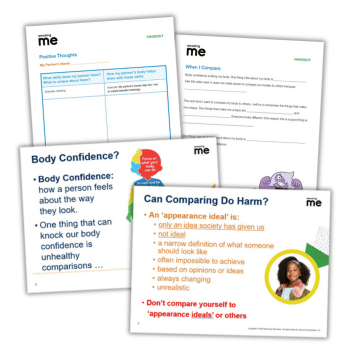7 Stress-Busting Strategies To Help You Through The School Day

Workplace strain grinding you down? Therapist Kate Beddow runs through a list of stress-reducing activities and small lifestyle changes that busy teachers can incorporate into their daily routines… In the midst of one of the biggest recruitment crises education has ever seen, we’re continuing to pile more stress on to our teachers and TAs. With […]

- by Kate Beddow

Workplace strain grinding you down? Therapist Kate Beddow runs through a list of stress-reducing activities and small lifestyle changes that busy teachers can incorporate into their daily routines…
In the midst of one of the biggest recruitment crises education has ever seen, we’re continuing to pile more stress on to our teachers and TAs. With around two thirds of teachers reporting that their work has negatively impacted on their mental or physical health, and increasing numbers of teachers being medicated for depression, it is clear that there’s a need for teachers to care for their mental and physical health.
Yoga every morning and meditation every lunchtime simply isn’t realistic – but there are many mindfulness techniques that can be worked into everyday activities. Combining these with some simple lifestyle changes can dramatically lower stress levels.
1. Breathe It may sound obvious, but conscious breathing is proven to lower anxiety and stress levels, helping you to stay calm when under pressure.
A simple breathing technique to use is ‘7/11 breathing’ – this involves breathing in to the count of 7, and breathing out to the count of 11. Our biological response to stress is to quicken our breathing, so that our breath becomes very shallow. By breathing consciously at regular intervals during the day or when we feel stressed we allow our body to regain control, reversing those automatic impulses and chemical reactions so that we immediately feel calm.
2. Eat well Diet is one of the biggest challenges society faces at the moment. It is important to eat healthily in order to help your body stay calm; simply reducing your sugar and caffeine intake you can help your body deal with stress.
Caffeine causes your body to feel wide awake and ready to tackle anything, but also makes you feel anxious, tired and craving more. When under pressure your body craves sugar, which causes a temporary ‘high’ – but in the long term, your body will need greater and greater quantities to get the same result. This can impact on your physical and mental health dramatically, and after that temporary high, leaves you feeling fatigued.
3. Mindful moments It isn’t only what you eat that can help you cope better with life; how you eat also has a huge impact. Teachers are increasingly working through their lunch break, meaning they either skip lunch altogether or work while they eat.
Taking just 10 minutes to sit and eat lunch will have huge benefits. Really focus on what you are eating – the texture, taste, smell and so forth. Just enjoy your food.
You also can take time to really be ‘present’ while doing all manner of jobs, such as washing up or photocopying. Stop planning and thinking about what needs to be done next, and start paying attention to your breathing, the sounds around you, how your body feels and what you can smell.
4. Sleep How many of us wake up with tasks for tomorrow going round and round our heads at 2am? Getting enough sleep can be a real challenge, as there is always something to remember. Getting enough sleep is vital, however, and lack of sleep is closely linked to depression. Keep a notebook beside your bed for quickly jotting down those tasks you’re terrified of forgetting, then then try point number 5!
5. Meditate There is an old Zen saying that you should sit and meditate for 20 minutes a day – unless you are too busy, in which case you should meditate for an hour.
Meditation takes many forms. It may be a daily practise you choose to prioritise, or something that you try to fit in your day when you get the chance. Use your smartphone to help you – there are thousands of online guided meditations and downloadable apps out there. Find one you like and listen to it while going to sleep, or try putting one on if you wake up in the middle of the night. It will relax you, and help you drop back off.
6. Get outside Being outside is scientifically proven to boost your immunity, lower stress levels, improve your focus and much more besides. As the weather starts to improve, try heading outside for your lunch. Why not try taking your class outside for as many lessons as you can? The benefits will extend to them too.
7. Teach your class to be mindful The benefits of mindfulness for children go beyond allowing them to cope better with anxiety and stress, to helping them improve focus and grades. Why not try teaching a relaxation lesson with your class and potentially join in?
Whether you decide to adopt all of the above or just one or two, you’ll see a noted improvement in your outlook – and much quicker than you might think, too.
Devoting just five to 10 minutes a day to taking care of your emotional health will have a dramatic impact on your mental health. Before dismissing it as something else you haven’t got time for, give mindfulness a go – you won’t be sorry.
Kate Beddow is holistic therapist specialising in promoting mindfulness and good mental health in schools, having previously trained as a primary teacher and subsequently taught within EYFS to KS4; for more information, visit www.katebeddow.co.uk or follow @katebeddowuk










